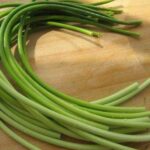You may be completely skeptical about the effectiveness of using betel leaves as a folk remedy for treating scalp fungal infections. Let’s explore this topic further and find out!
1 Treating Scalp Infections with Betel Leaves
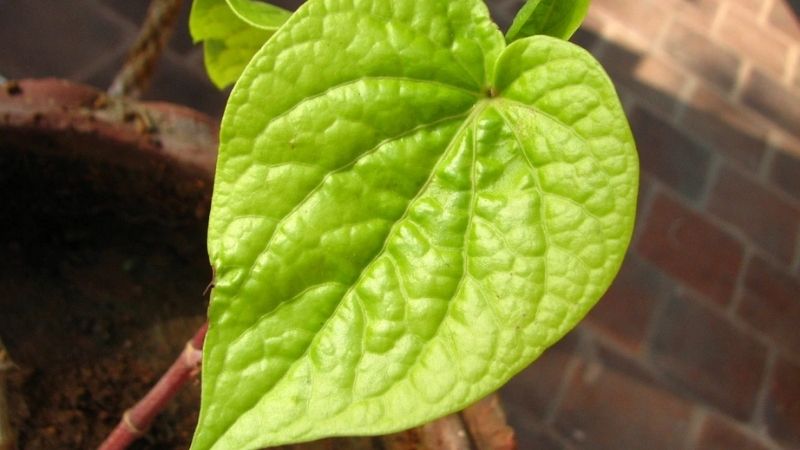 Treating Scalp Infections with Betel Leaves
Treating Scalp Infections with Betel Leaves
Betel leaves possess strong antibacterial properties and are effective in inhibiting harmful viruses, fungi, and preventing bacterial infiltration. Therefore, applying this traditional treatment method for scalp infections is entirely possible and effective.
Additionally, betel leaves can be combined with the following ingredients to double their effectiveness and conclusively treat scalp infections, as detailed below.
Betel Leaves and Salt
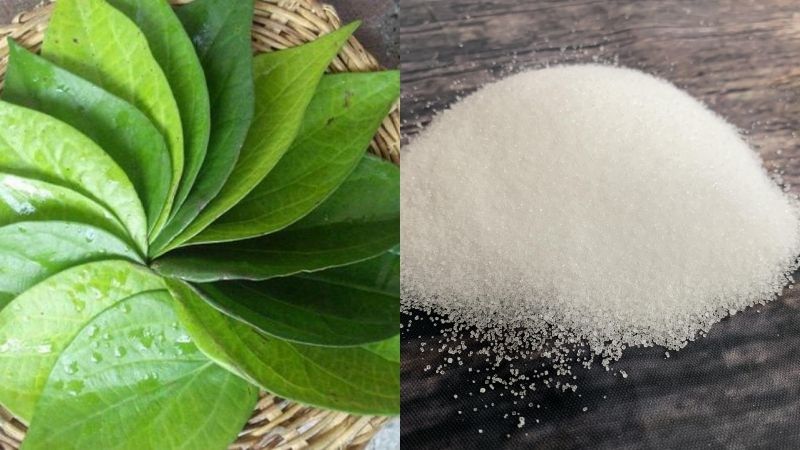 Treating Scalp Infections with Betel Leaves and Salt
Treating Scalp Infections with Betel Leaves and Salt
Ingredients
- 1 handful of betel leaves
- 1 tablespoon of salt
Preparation
Usage
- First, shampoo your hair, then rinse with the betel leaf water, gently massaging the scalp to allow the water to penetrate.
- Perform this treatment 2-3 times a week.
Betel Leaves and Acacia Concinna
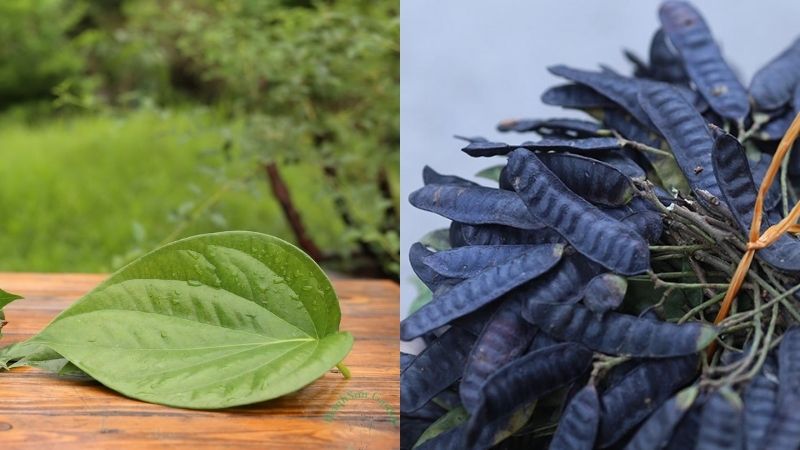 Treating Scalp Infections with Betel Leaves and Acacia Concinna
Treating Scalp Infections with Betel Leaves and Acacia Concinna
Ingredients
- 20 mature betel leaves
- 10 dried Acacia Concinna fruits, broken into pieces, and seeds removed
Preparation
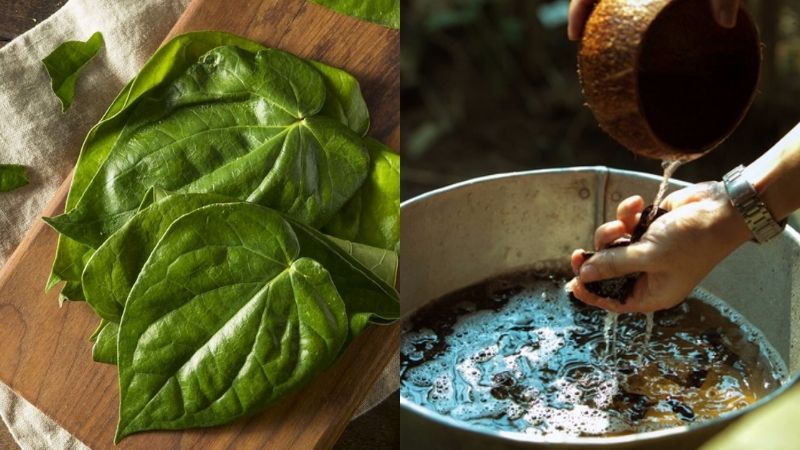 Preparation
Preparation
Usage
- Shampoo your hair, then rinse with the betel leaf and Acacia Concinna water, gently massaging your scalp for 5-10 minutes to allow the solution to penetrate.
- For best results, repeat this treatment every other day for 8-9 weeks.
Betel Leaf Extract
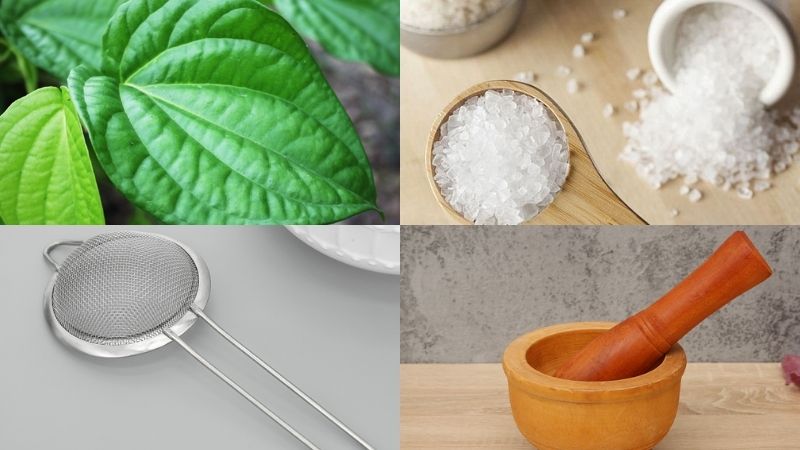 Treating Scalp Infections with Betel Leaf Extract
Treating Scalp Infections with Betel Leaf Extract
Ingredients
- 20 betel leaves
- Salt
- Water
Preparation
Usage
- Combine this treatment with the betel leaf and Acacia Concinna hair rinse for optimal results. Afterward, apply the betel leaf extract as a hair tonic and leave it on overnight.
- Apply the betel leaf extract at least 2-4 times a day for 8-9 weeks to treat scalp infections.
Note: This method is more suitable for men as it may make hair oily.
Grapefruit Peel Hair Rinse Combined with Betel Leaf Extract Application
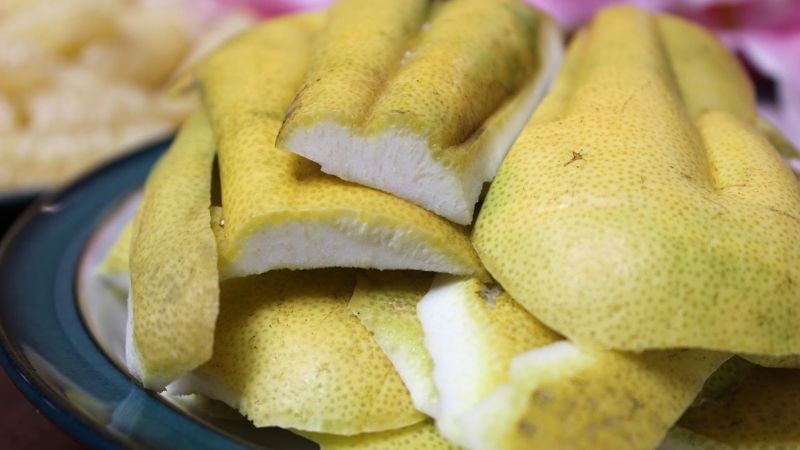 Grapefruit Peel Hair Rinse Combined with Betel Leaf Extract Application
Grapefruit Peel Hair Rinse Combined with Betel Leaf Extract Application
Ingredients
- 1 grapefruit peel, dried in the sun for 3 days
- Betel leaf extract (prepared as described above)
Preparation
Boil the grapefruit peel in 3 liters of water for about 30 minutes, then turn off the heat and add another 3 liters of water to reduce the temperature of the rinse.
Usage
- After rinsing your hair with the grapefruit peel solution, apply the betel leaf extract as a hair tonic.
- For best results, rinse your hair with the grapefruit peel solution every other day for 6-8 weeks and apply the betel leaf extract 3 times a week.
2 Advantages and Disadvantages of Treating Scalp Infections with Betel Leaves
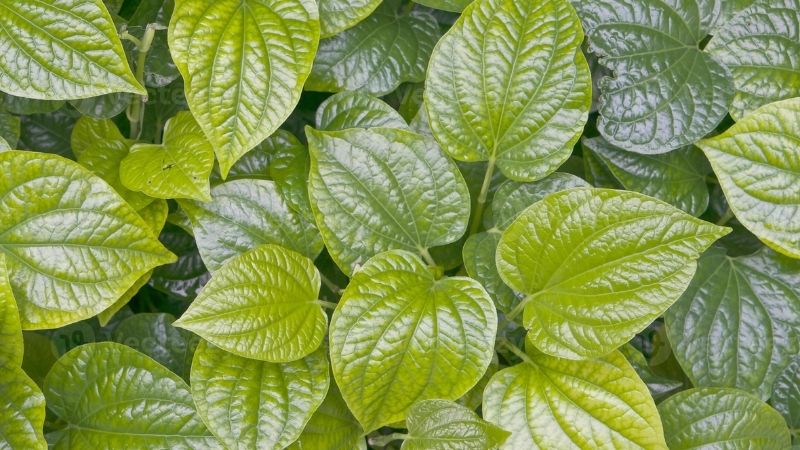 Advantages and Disadvantages of Treating Scalp Infections with Betel Leaves
Advantages and Disadvantages of Treating Scalp Infections with Betel Leaves
While using betel leaves to treat scalp infections is highly effective, there is a flip side to consider before trying this method!
Advantages
- Inexpensive and easily accessible ingredients.
- Gentle and safe for users.
- Does not cause skin damage or irritation.
Disadvantages
- Results may vary depending on individual factors.
- Requires patience and commitment to consistently apply these methods.
- Time-consuming and labor-intensive in terms of preparation and application.
- May only limit the severity of the condition rather than providing a complete cure.
Scalp infections not only affect aesthetics but also cause hair loss, itching, flaking, and other issues that impact patients’ lives. Scalp infections are classified into several types, and proper diagnosis through testing is necessary to determine the appropriate treatment. There are two main types of scalp infections:
- Scalp infections caused by Trichophyton: This condition leads to itching and temporary hair loss. In addition to the scalp, patients may also experience fungal infections in other areas such as the groin, buttocks, and nails.
- Scalp sores (hair eggs) caused by the fungus Pierdraiahortai and Trichosporon beigeli: This condition does not cause hair loss but may lead to mild itching or discomfort. It is often associated with poor personal hygiene, and sharing pillows or combs with an infected person can also lead to transmission.
With this information, we hope to have provided a clearer understanding of this traditional folk remedy. However, it is essential to consider your individual health status and condition before proceeding. Good luck!
6 Little Habits That Stop Hair from Falling Out in Clumps When You Brush or Wash It
 Hair from Falling Out in Clumps When You Brush or Wash It’>
Hair from Falling Out in Clumps When You Brush or Wash It’>Introducing the six habits that will transform your hair game and bid farewell to those pesky hair fall woes. Get ready to unlock your crowning glory’s full potential!
The Ultimate Guide to Mouthwash: Everything You Need to Know
When using mouthwash, it is important to keep a few key considerations in mind. Mouthwash is a powerful oral hygiene tool, but if used incorrectly, it can do more harm than good. By following a few simple guidelines, individuals can ensure they are using mouthwash safely and effectively, maximizing oral health and getting the most bang for their buck.
























